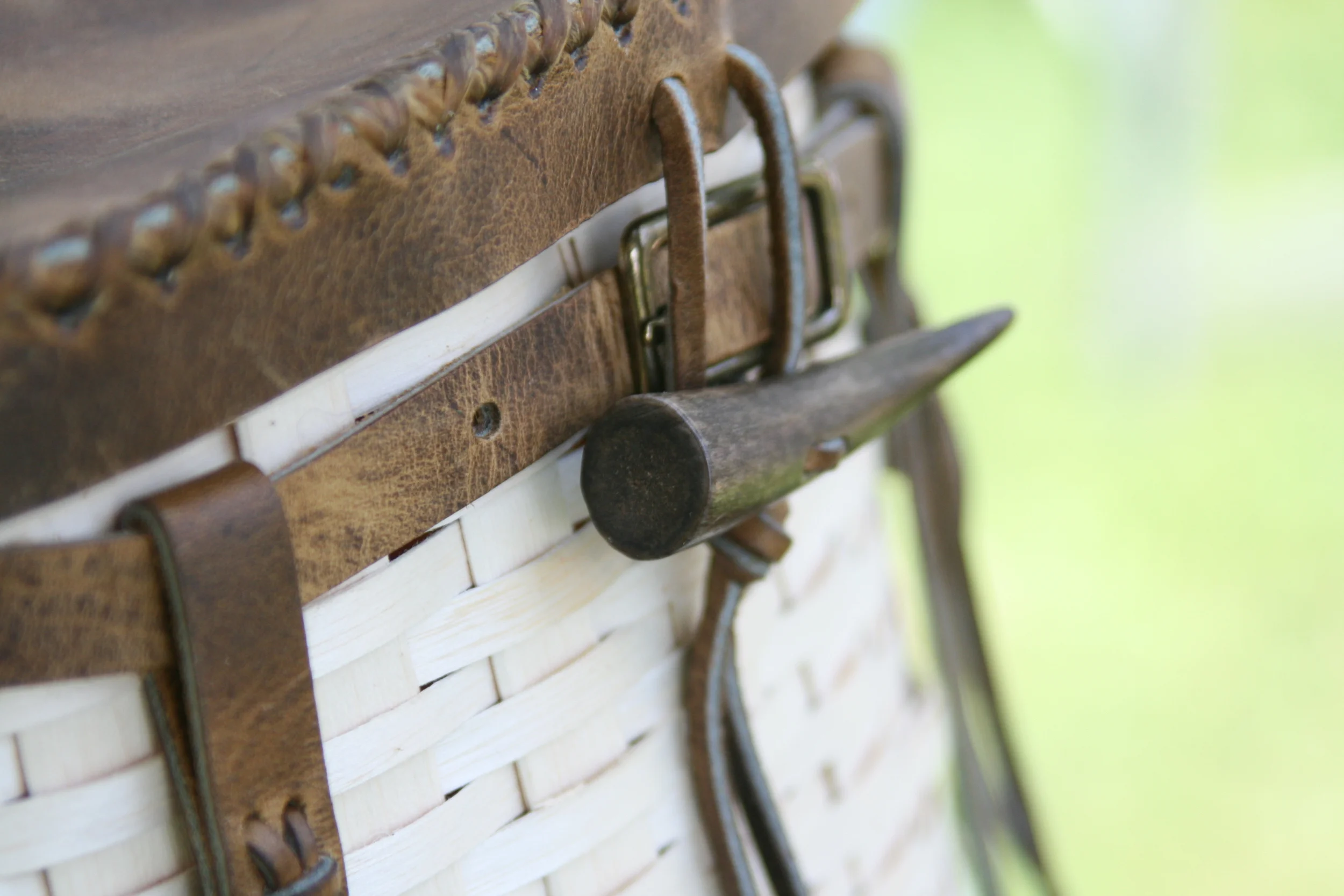Abbe Museum Women: Mary Cabot Wheelwright and Fannie Hardy Eckstorm
/By Julia Clark, Curator of Collections
Women who were passionate about Native American art, culture and traditions were drawn to the Abbe Museum over the years. Mary Cabot Wheelwright and Fannie Hardy Eckstorm are two who really stand out. Not only did each woman make important contributions in her own right, but their friendship and working relationship add another dimension to their story.
were passionate about Native American art, culture and traditions were drawn to the Abbe Museum over the years. Mary Cabot Wheelwright and Fannie Hardy Eckstorm are two who really stand out. Not only did each woman make important contributions in her own right, but their friendship and working relationship add another dimension to their story.
Mary Cabot Wheelwright (1878-1958) was born in Boston, the daughter of a wealthy upper class family. She had no formal anthropological education, but had a life-long interest in Native American religion and arts. In 1926, Wheelwright met Hastiin Klah, a Navajo religious leader or “singer,” and worked with him for several years to record ceremonial narratives, prayers and chants. In 1937, Wheelwright was encouraged by David Rockefeller, Sr. to found what is now the Wheelwright Museum of the American Indian in Santa Fe.
Miss Wheelwright also had homes in Northeast Harbor and on Sutton Island. Her interest in Native American arts and culture extended to the Maine tribes, as well, and she became involved with the Abbe Museum’s early efforts to collect and interpret Maine Native culture. Miss Wheelwright’s involvement with the Abbe Museum was long. She was a trustee of the Museum from 1953 until her death in 1958. Before that, she was an important donor to the Museum’s expanding ethnographic collections. In 1931, she donated 62 Maine Indian baskets to the Abbe; over the next 25 years, other, unique and important objects were acquired for the Museum.
Fannie Hardy Eckstorm (1 865-1946) was born in Brewer, Maine. In contrast to Wheelwright’s upper class background, she was the daughter of fur trader and naturalist Manly Hardy. It was from her father that Eckstorm acquired a deep interest in Maine Native Americans, history and nature. Educated in the public schools of Brewer, Eckstorm eventually earned a degree from Smith College. She married the Reverend Jacob Eckstorm in 1893 and had two children. After her husband’s death in 1899, Eckstorm took up research on Maine Native languages, history and culture, and Maine history and folklore. She published numerous books and papers in scholarly journals on topics as diverse as Maine Indian place names, Maine game laws, and ballads of the Penobscot River log drivers.
865-1946) was born in Brewer, Maine. In contrast to Wheelwright’s upper class background, she was the daughter of fur trader and naturalist Manly Hardy. It was from her father that Eckstorm acquired a deep interest in Maine Native Americans, history and nature. Educated in the public schools of Brewer, Eckstorm eventually earned a degree from Smith College. She married the Reverend Jacob Eckstorm in 1893 and had two children. After her husband’s death in 1899, Eckstorm took up research on Maine Native languages, history and culture, and Maine history and folklore. She published numerous books and papers in scholarly journals on topics as diverse as Maine Indian place names, Maine game laws, and ballads of the Penobscot River log drivers.
By 1930, Wheelwright and Eckstorm began corresponding. Initially, their letters are professional and formal. Eckstorm located an important collection of trade silver that Wheelwright was interested in purchasing. Later, Eckstorm collected stories and legends from Passamaquoddy elder Lewey Mitchell for Wheelwright. It appears that Wheelwright financially supported much of Eckstorm’s research after 1930. Wheelwright sent Eckstorm on buying expeditions to the Passamaquoddy reservations in eastern Maine, paid Passamaquoddy informants for legends and songs; and purchased objects that came available on the Indian art market. Eventually, the two women became close friends.
When Wheelwright donated her collection of Wabanaki and other New England Native American baskets to the Abbe Museum in 1931, Eckstorm was hired to document and catalog it. That work, Handicrafts of the Modern Indians of Maine, is still a classic on the ethnographic material culture of Maine’s Wabanaki tribes. The Mary Cabot Wheelwright Collection contains some of the oldest and finest examples of Maine Indian basketry in the Abbe’s collection. Eckstorm also donated several pieces from her personal collection to the Abbe over the years.
Learn more about Fannie Hardy Eckstorm:
http://umaine.edu/folklife/exhibits/women-folklorists/fanny-hardy-eckstorm/
Learn more about the Wheelwright Museum of the American Indian:
http://www.wheelwright.org/about.html
Image 1. Photo of Mary Cabot Wheelwright in the library of her family's home in Northeast Harbor, Maine, 1912. Photography by Florence Maynard. Courtesy of the Wheelwright Museum of the American Indian.Image 2. Photo of Fannie Hardy Eckstorm courtesy of the Maine Folklife Center.
Image 3. Fancy basket made by Molly Molasses, ca. 1862, collected by Fannie Hardy Eckstorm, and given to the Abbe Museum by Mary Cabot Wheelwright in 1931.







